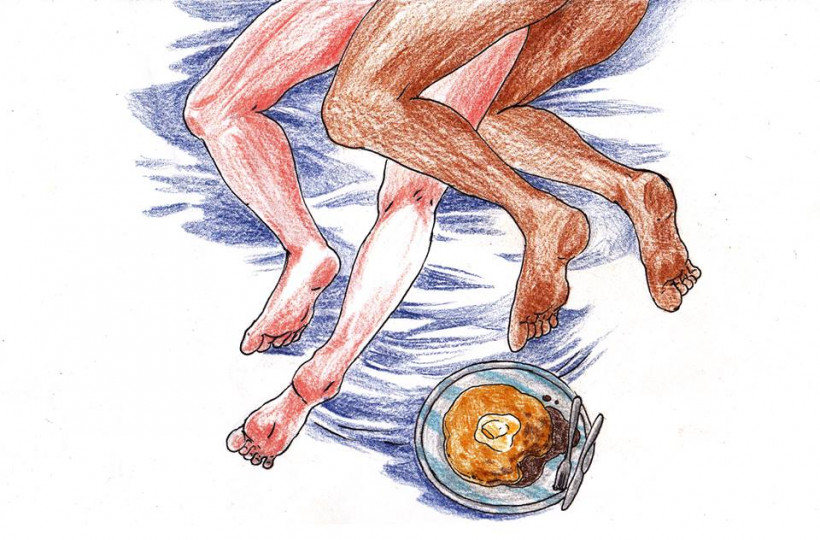BDSM Is About Consent
BDSM is a type of sex play that involves acts of bondage and discipline, dominance and submission, and sadism and masochism. Some people derive pleasure directly from pain or violence, but for many, the excitement comes from the manipulation or subversion of power dynamics within relationships.
BDSM requires a sophisticated set of communication and relationships skills, and it requires a level of trust that is difficult to casually achieve.
Consent is at the core of BDSM and if done properly, miscommunications about consent are not commonplace. Above all, BDSM requires an education and a commitment to your partner’s well being.
BDSM has seen a recent surge in popularity throughout mainstream pornography and popular fiction. It’s exciting to see the portrayal of alternative sexual interests becoming mainstream, but these depictions rarely give an accurate image of BDSM.
They leave out the parts where people establish consent for acts they want to do, and they don’t show the required relationship-building. They don’t show us the work, negotiation, boundary-setting, verbal and non-verbal communication, checking in, and aftercare that are left out.
They only show us the doing of BDSM, thus leaving us with the idea that BDSM is purely violence or dominance. In a time when most people are getting their sexual education from porn, this becomes the representation to which we are most exposed, and which we later replicate with our partners.
Engaging in BDSM practices with such a simplified idea of BDSM is dangerous. It can pave the way for people that commit sexual assault in order to normalize their actions as a particular kink that their partner wasn’t into; using it as a pretext to cover the fact that actions were non-consensual and crossed boundaries.
The reality is that most people who commit sexual assault don’t think that they committed sexual assault. For the most part people who have abused, assaulted and raped often don’t think of themselves as having done so, and they certainly don’t identify with labels like rapist or abuser.
Typically, they feel like they have a right to do what they want to someone else, a perspective enabled by mainstream depictions of alternative sexual practices that omit the need to establish consent.
Part of why rape culture is so difficult to dismantle is that it’s far more complicated than people being just plain evil. Often, a lack of awareness and education regarding how one’s actions constitute abuse is a major factor.
This is important because people who commit sexual assault are not likely to police their own actions and do the things we say “rapists” or “abusers” should do differently if they don’t identify with these terms.
In shifting the dialogue around assault towards teaching people not to rape, we also need to acknowledge the fact that some sexual assailants do not realize the significance of their own actions.
Our challenge, then, is in finding new ways to discuss assault that actually reach the people who assault, rather than just those who are assaulted.
The work we do to support victims is important and necessary, but the work we do to reach those who assault must also be considered since it has the most potential for change.
The balance between channeling one’s efforts towards supporting victims and addressing perpetrators is precarious and I don’t necessarily have a solution or know how to achieve it.
It’s difficult, but I think part of it will involve creating everyday spaces that encourage the education and reflection of those who might commit sexual assault, while continuing to offer support to the victims of these assaults.
It will involve discussions about how to best approach those who aren’t seeking this reflection. There are places on campus to have these conversations and work towards these goals, such as the Sexual Assault Resource Centre and the Centre for Gender Advocacy. I encourage those of you interested in finding this balance to approach them and to get involved.
Finally, the most important work to do is inner work. We all have a responsibility to examine our own behavior and reflect on whether we are ever the perpetrators of sexual assault.
Looking at oneself in this way takes a level of self-awareness, courage, and willingness that is not always easy to uphold, but very necessary if we ever hope to encourage others to do the same.
—Melissa Fuller @mel_full
Submit your question anonymously at sex-pancakes.com and check out “Sex & Pancakes” on Facebook. For more info on the Sexual Assault Resource Centre, visit them on the SGW campus in room GM-300.27. For more info on the Centre for Gender Advocacy, visit them at 2110 Mackay St.






_600_375_90_s_c1.jpg)
_600_375_90_s_c1.jpg)